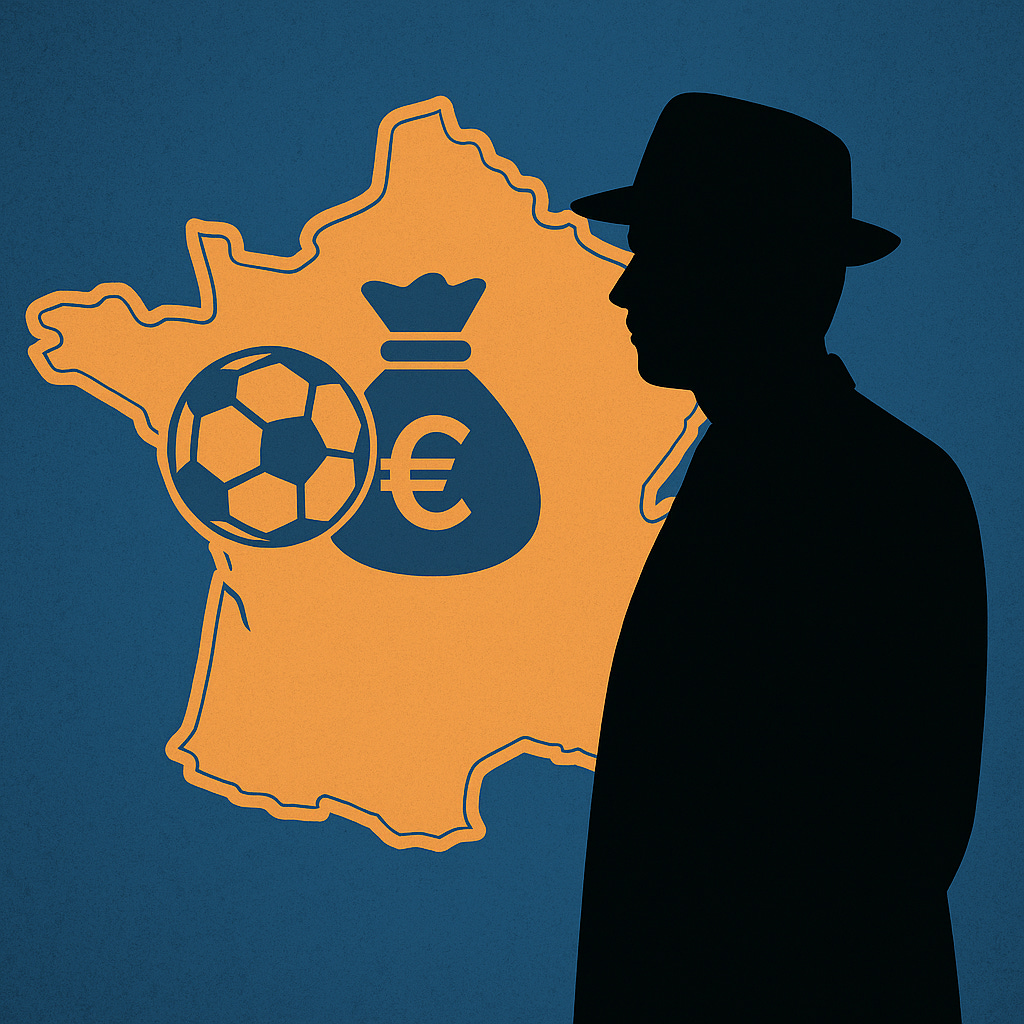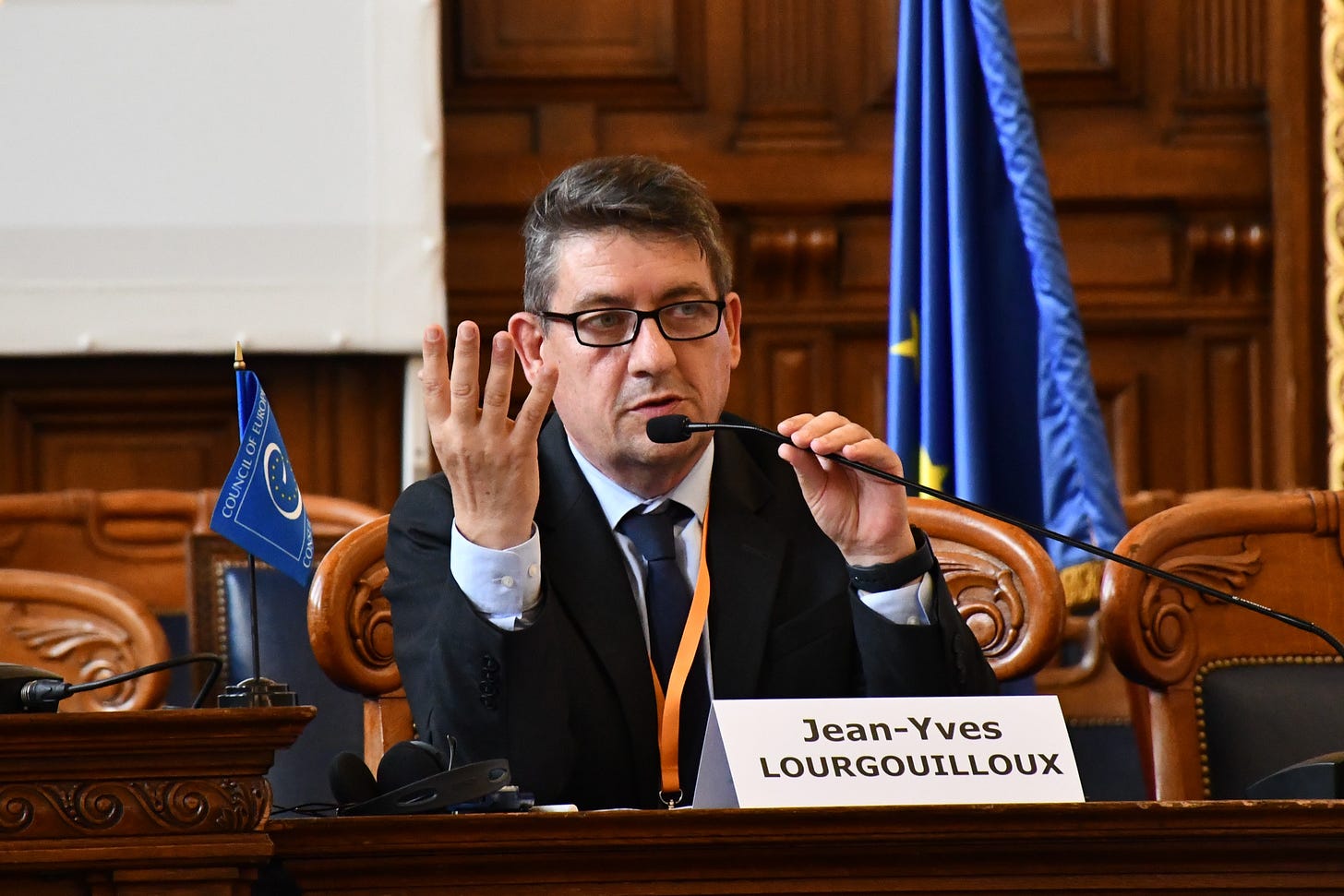France Just Gave Match-Fixers the Mafia Treatment (Free Article)
A new law in France sees match-fixing cases now investigated by specialized criminal courts, with culprits punishable with a decade in prison and millions in fines.
Match-fixers in France now face being tried with the same severity and consequences as drug cartels and human traffickers. a
In June, France adopted a law that ranked the manipulation of sports competitions at the same level as organized crime in the French Code of Criminal Procedure.
This means match-fixing is now treated as a serious organized crime, not a minor infraction.
Why does this matter?
In France, specialized courts known as JIRS are reserved for tackling serious organized crime cases, related to drug cartels, human trafficking rings, and major fraud. This law means they can now take charge of complex sports corruption cases.
Crucially, investigators are also empowered to use special techniques like wiretaps, surveillance, and infiltration that were previously off-limits for sports cases
Law no. 2025-532 was nicknamed Freeing France from the Drug Trafficking Trap. But while it was packaged as an anti-narcotics deal, one amendment targeted the status of sports corruption.
How does it change the way match-fixing is perceived?
For years, criminal syndicates have exploited sports competitions and betting markets as a low-risk, high-reward business. This meant that match-fixing was quickly targeted by criminal groups as a way to both generate huge profits and launder money with limited risk.
Prosecutors, in France and elsewhere, were a step behind, as they relied on relatively weak legal tools. The new law changes that equation by handing jurisdiction to the JIRS.
The JIRS, France’s interregional organized crime courts, have a track record of managing complex international investigations, such as the fallout from Operation Trident, which saw French police officers accused of collaborating with Colombian traffickers.
There are eight JIRS based across France, staffed by seasoned prosecutors and judges trained in dismantling elaborate criminal networks, from drug cartels to financial fraud schemes.
Previously, match-fixing cases would likely be handled by local courts. These would soon stutter if the scope of the case extended. Now, JIRS can target the entire network behind the fix, not just the small fry, handling the investigation, indictments and trials.
Even before the law was passed, JIRS prosecutors ) have been trained to recognize and pursue sports manipulation cases, anticipating this reform.
“We have been very much pioneers in training JIRS magistrates on these issues, particularly with the Paris and Marseille prosecutors’ offices,” Corentin Segalen, coordinator of the French national platform against sports manipulation, told the Sports and Crime Briefing.
“France is one of the only countries to now have a police unit specialized in the fight against match-fixing,” he added.
So what new toys do they get to use?
Previously, French investigators looking at match-fixing were limited to traditional techniques, such as interviews and reviewing betting data. While always useful, this may be of limited use under a determined criminal conspiracy.
Match-fixers, like any savvy crminals, communicate in code, use burner phones, and operate via intermediaries. This has made it very difficult to prove intent and complicity in high-profile match-fixing cases.
The new law directly addresses this gap.
According to the French Senate’s report on the law, investigators can now use phone taps, ambient listening devices, beacon tracking, surveillance of suspects, and even infiltration by undercover officers. Such measures were previously reserved for crimes like drug trafficking, terrorism, or major financial crimes, due to their intrusive nature.
What about on the punishment side?
The bribery of sporting officials or players was already illegal in France, but the sanctions were modest. At worse, this represented short imprisonment terms and fines of up to €75,000 under the general corruption framework.
The 2025 reform introduced a new aggravated offense of sports corruption committed as an organized group. If prosecutors can show that a manipulation was carried out by a structured group, which is likely for match-fixing, culprits will be punished under “organized crime corruption.”
This could lead to sentences of up to ten years in prison and fines of up to €1 million, or twice the amount of illicit profits from the fix.
“It’s a response proportionate to the threat,” noted the Senate Law Commission.
How long has this taken?
France has long been an early mover in this space. It regulated online betting in 2010 and created one of the first national platforms against sports competition manipulation in 2016, as well as ratifying the Macolin Convention in 2023.
Training and awareness have also been a big part of this groundwork. Jean-Yves Lourgouilloux, president of the international MARS network of sports prosecutors, has spearheaded efforts to educate French magistrates about sports integrity threats. The National School for the Judiciary (École Nationale de la Magistrature) also has specific modules on sports competition manipulation in its training programs for judges and prosecutors.
Segalen does temper expectations by noting this law is forward-looking. “I don’t think it will lead to reopening old cases,” he explains. And France is far from being one of the worst-affected countries in Europe for match-fixing.



